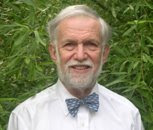
December 31st is the birthday of Herman Boerhaave (1668-1738) who initiated clinical teaching and the modern academic hospital. He earned his doctorate in philosophy at the University of Leiden with a dissertation attacking the doctrines of Epicurus, Thomas Hobbes and Spinoza. He then earned his medical degree at Harderwijk and was appointed Professor of Botany and Medicine at the University of Leiden.
He published numerous articles describing many new species of plants and made numerous additions to the Botanical Garden at Leiden.
His reputation was such that all the princes of Europe sent him students because he was an indefatigable teacher. Peter the Great took lessons from Boerhaave when he came to study maritime affairs.


